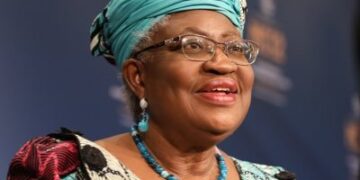In a bold and detailed statement on X today, billionaire businessman and Chairman of Otedola Group of Companies, Femi Otedola, has lauded the transformative impact of the Dangote Refinery on Nigeria’s energy landscape, crediting both Aliko Dangote’s vision and President Bola Tinubu’s political will for a historic shift in the downstream petroleum sector. Posted at 10:45 AM UTC, Otedola’s remarks come as the nation grapples with the evolving dynamics of fuel supply and market reforms.
Otedola described the refinery’s commencement of operations as a “leap for Nigeria’s energy independence and economic future,” spotlighting its role in breaking the stranglehold of entrenched interests that thrived on fuel imports, subsidies, and inefficiencies. He singled out Tinubu’s full deregulation of the sector as a “decisive break from the past,” dismantling a system plagued by rent-seeking, subsidy fraud, and smuggling. This move, he argued, has paved the way for transparency, competition, and customer-centric service delivery.
The business mogul, who co-founded the Depot and Petroleum Products Marketers Association of Nigeria (DAPPMAN) in 2002, issued a stark warning to its members clinging to outdated models. “With over 4 million metric tons of idle storage capacity and local refining now a reality, the old business of depots is crumbling,” Otedola stated, advising marketers to sell their assets or pivot to retail outlets and new value chains. He criticized DAPPMAN’s demand for N1.5 trillion from Dangote Refinery, calling it an unjust burden on consumers, and urged the association to adapt or risk irrelevance.
Highlighting his own legacy in the sector—having been a pioneer in diesel supply and a former “king” of the industry—Otedola emphasized the logistical revolution driven by Dangote. The refinery’s deployment of 8,000 eco-friendly CNG trucks, he noted, is reducing pollution and congestion in key areas like Apapa and Ibafon, outpacing the aging fleet still used by some operators. “The game has changed,” he declared, drawing from his 2005 honor as life patron of the Petroleum Tanker Drivers (PTD) union.
Otedola also revisited his past warnings to former President Goodluck Jonathan about the subsidy regime, which he claims siphoned over ₦2 trillion through depot-linked corruption. He contrasted this with the current era, where local refining eliminates the need for imported fuel, mirroring global trends where depots in hubs like Amsterdam are being phased out.
The statement has sparked varied reactions among stakeholders. Industry analysts see it as a call to action for adaptation, with recent data indicating a 40% drop in fuel imports since the refinery’s launch [Dangote Industries Limited, 2025-02-28]. However, DAPPMAN’s ongoing legal threats against Dangote over smuggling allegations underscore lingering tensions. Meanwhile, environmental advocates applaud the CNG truck initiative, though some question the long-term viability of Nigeria’s refining capacity, given the stalled Port Harcourt Refinery rehabilitation.
For investors and policymakers, Otedola’s endorsement of deregulation and his challenge to DAPPMAN to acquire the Port Harcourt facility signal a pivotal moment. As Nigeria navigates this energy transition, the refinery’s success could redefine the continent’s oil and gas narrative, with Otedola’s parting words to Dangote—“go to Monaco and rest jejely”—adding a personal touch to a seismic industry shift.
Stakeholder Takeaways:
Energy Sector Players:The shift to local refining demands strategic pivots, with retail and logistics offering new opportunities.
Government: Continued deregulation support is critical to sustain momentum and curb cabals.
Environmental Advocates: The CNG truck rollout is a step forward, but broader green policies are needed.
Investors: The refinery’s success could unlock significant returns, though risks remain with unresolved disputes.
For further insights, stakeholders are encouraged to monitor the unfolding DAPPMAN-Dangote legal saga and the government’s next steps on refining infrastructure. This is a defining chapter for Nigeria’s economic sovereignty—adapt or be left behind.




























